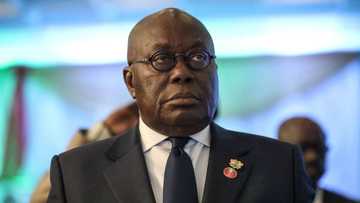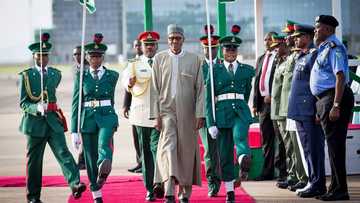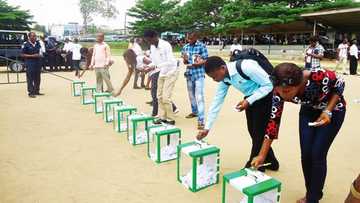Lancet Nigeria Commission: A Roadmap to Nigeria’s Health Sustainability
- History was made in Nigeria recently as the UCL's Institute of Global Health launched the Lancet Nigeria Commission report in Abuja
- The report provides a historical perspective on the state of health in Nigeria and also insights into the challenges in healthcare delivery in Nigeria and
- It also presents analyses and evidence for a framework and new narrative for UHC and the future of health in Nigeria
PAY ATTENTION: Click “See First” under the “Following” tab to see Legit.ng News on your Facebook News Feed!
FCT, Abuja - In August 2020, Nigeria attained wild polio-free status after meeting all the criteria for certification, which include three years of non-detection of any wild poliovirus case in the country. It was a monumental success as, at the time, only Nigeria, Afghanistan, and Pakistan were the only polio-endemic nations in the country.
Although recent reports as of March 2022 showed a small number of vaccine-derived poliovirus type 2, Nigeria has largely contained the spread, according to the World Health Organisation.
The success of Nigeria’s polio management is a small beacon of hope in a country where the health sector has not been properly managed. This same success was also seen in the management of the outbreak of Ebola in 2014. The management of the two health situations reveals a will that has so far not spread through the health sector in the country.
The Lancet Commission, in its report titled: “Investing in health and future of the nation” examines the relationship between Nigeria and its citizens in relation to the prioritisation of health, problems bedevilling the sectors, and recommendations on how Nigeria can improve in the sector.
It also highlights the consequences of not prioritising the sector and failing to put some of its recommendations into action.
Over a two-year period, the commission, led by Professor Ibrahim Abubakar, studied and examined health inequalities in Nigeria. The commission delivered the report at an event in Abuja with the Nigerian vice president, Professor Yemi Osinbajo, in attendance.
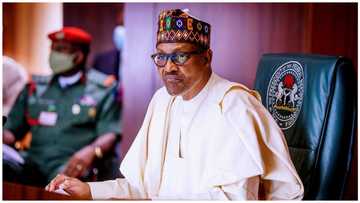
Read also
Nigerians in UK reject suspension of passports biometrics, accuse high commission of extortion
PAY ATTENTION: Install our latest app for Android, read best news on Nigeria’s #1 news app
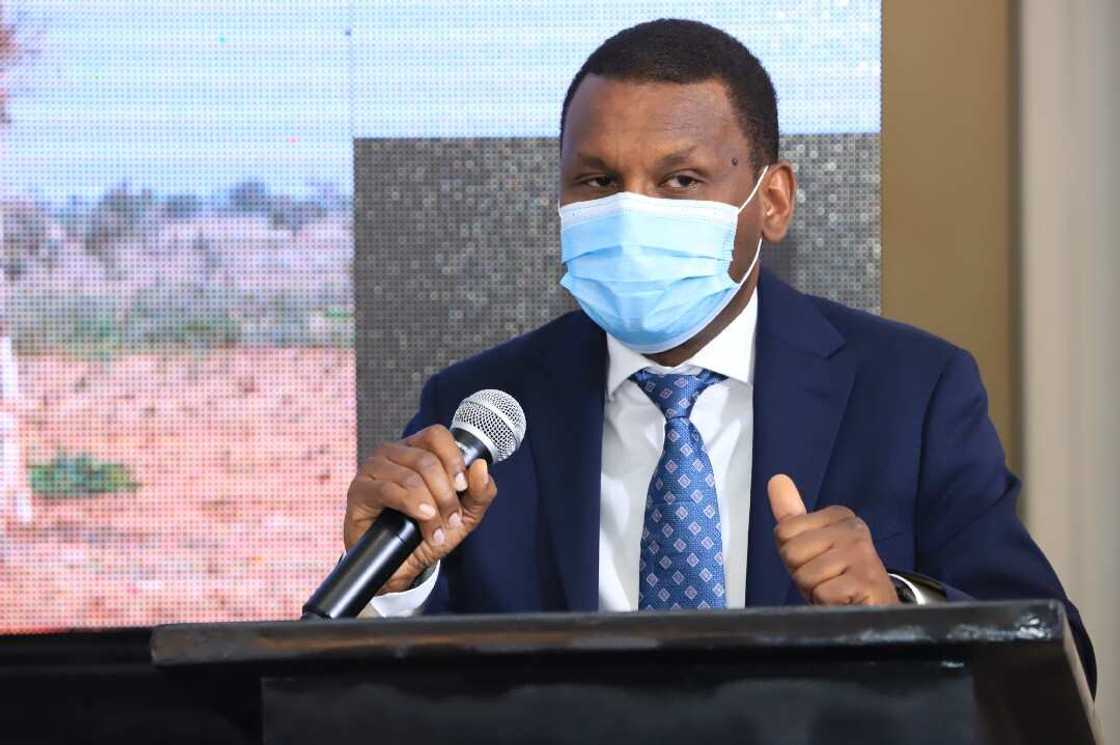
Source: Twitter
Speaking to journalists on the sidelines of the event, Professor Abubakar who is the Dean, UCL Institute for Global Health, London said:
“Health financing is an issue that we looked at in great detail in the report. We did bottom-up estimates and modelling and we collected data from within Nigeria to come up with our recommendations.
“We are clear that for 83 million least wealthy Nigerians, the sum of N15,000 will be enough to provide them with a basic health package.”
On his part, the Assistant Director-General, Health Emergency Intelligence, World Health Organization, Dr. Chikwe Ihekweazu said:
“What we have done in this report by collection of very competent Nigerians in this field, is to look deeper into the drivers of maternal mortality.
“What this piece of work has helped us to do is to dig deeper into the causes, and therefore, provide solutions or recommendations on how to move forward. Because health is a lot more complex than building a road. Improving maternal mortality requires interventions.”
While delivering his keynote address at the event, Osibanjo noted that the whole notion of the ‘One Nation, One Health’ policy to attain Universal Health Coverage would benefit the poor in Nigeria.
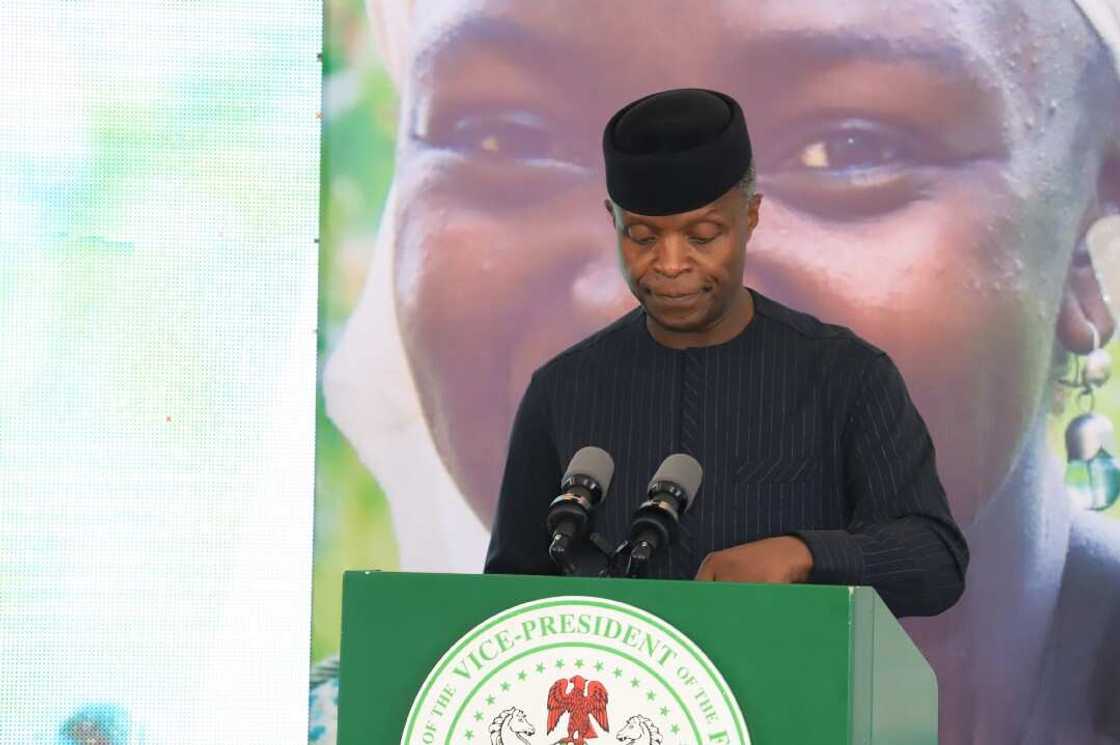
Source: Twitter
His words:
“The report is aptly described as a report by Nigerians for Nigerians. The report established in my view and did so indisputably, showing a linkage between health investment and the socio-economic development of our nation.
“To this end, the report proposes a new social contract centred on health to address Nigeria’s need to define the relationship between the citizen and the state.
“There is a further recommendation that prevention has to be at the heart of health policy, given Nigeria’s young population, requiring a whole-of-government approach and community engagement.
“The whole notion of the “One Nation, One Health” policy to attain universal health coverage, which would particularly benefit those segments of the population bearing the highest disease burden.
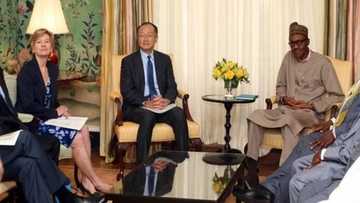
Read also
4 in 10 Nigerians are poor: World Bank list to FG urgent actions needed to stop poverty from getting worse
“An ambitious programme of healthcare reform to deliver a centrally determined, locally delivered health system, including providing health insurance coverage for 83 million poor Nigerians who cannot afford to pay premiums.
“A health system that encourages innovation and engages communities, to ensure that existing nationally driven schemes have local buy-in and are sustainable, and reforming the policy and regulatory landscape to unleash the market potential of the private sector.”
In April 2001, heads of state of African Union countries met and pledged to set a target of allocating at least 15% of their annual budget to improve the health sector in what is now known as the Abuja declaration. More than 20 years later, Nigeria has failed to reach this goal. The little gains made in some health areas have been overshadowed by underperformance in the whole sector.
The Lancet Nigeria COmmission report could not have been more timely as it provides data-based evidence on the direction the country’s health sector is going and its impact on the people and, by extension, the economy.
Africa’s most populous country also has one of the highest youth populations in the world. However, failure to adequately invest in the health sector coupled with institutional failures has made its life expectancy the lowest in the subcontinent.
According to the report:
“Addressing Nigeria’s health challenges requires a whole-of-government and whole-of-society approach to prevent ill health. This means investing in highly cost-effective health-promoting policies and interventions.”
Medical tourism has become a term synonymous with Nigeria. Due to the substandard medical sector, people who can afford it - the upper class and the ever-shrinking lower class - leave the country to Europe or America to receive medical treatment leaving the lower class and poor people at the mercy of a system in need of an overhaul. This is also coupled with the brain drain in the sector where doctors are constantly seeking opportunities to pick up jobs outside of the country. There was a stir in 2021 when Saudi Arabia came to ‘shop’ for doctors in Nigeria.
The Lancet report comprehensively explores the shortcomings in the Nigerian medical system and identified corruption and funding as two of the major problems stifling the development of the sector. This corruption is a testament to the lack of appropriate systematic policies to improve the sector and checkmate activities of persons that might derail this goal.
The mantra: Health is wealth provides an umbrella description of a significant aspect of Nigeria’s problem. Lack of sound health in some homes has exponentially increased the poverty level of some households; For instance, a home where the breadwinner falls sick and does not get access to sound and affordable medical opportunities, there is a high chance it will affect the education of the children and by extension condition them to poverty.
The Lancet report proposes:
“An ambitious programme of healthcare reform to deliver a centrally determined, locally delivered health system…that will provide health insurance coverage for 83 million poor Nigerians who cannot afford to pay premiums.”
This will be in line with a “One Nation, One Health” policy where all Nigerians, regardless of status, will have access to quality healthcare.
Achieving this goal is by no means an easy feat. Still, it is doable with political will engineered towards touching (vulnerable) Nigerians through policy changes, funding from both private and public contributions and sustained commitment over a long period of time. The report notes that the seriousness of the government can unleash the interest of the private sector and provide an all-round reform.
The most difficult part of Nigeria’s health challenges and possible future issues has already been done in the exhaustive Lancet report put together by a team of seasoned experts. How best Nigeria implements the recommendations will go a long way in defining where the country stands in its concern about the health of its citizens and the structure of its socio-economic sustainability and growth.
The Lancet report has already provided a roadmap. How well Nigeria navigates the route will tell what becomes of its citizens in all other development indices.
Source: Legit.ng


